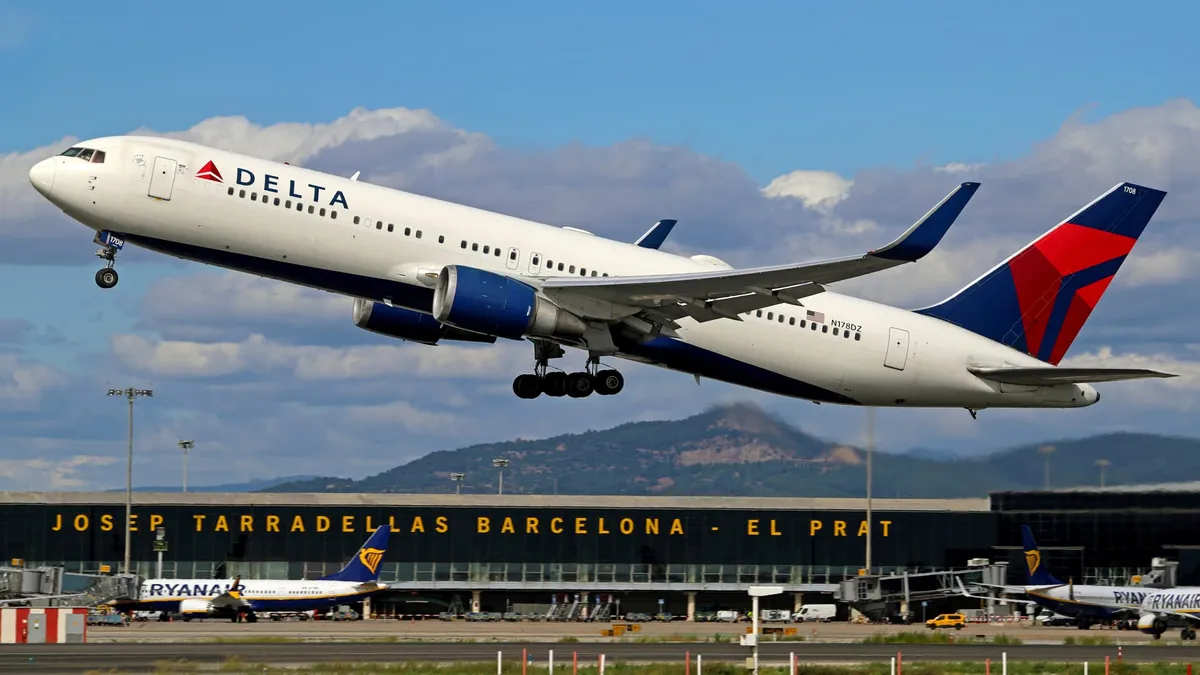
Delta Air Lines has recently revised its 2025 profit forecast, citing lower-than-expected demand throughout this year and a surplus of flights in the industry. Despite this adjustment, the airline's outlook for summer travel has surpassed Wall Street expectations, showcasing a resilient demand for air travel. In an interview, CEO Ed Bastian noted that while bookings have normalized, they currently sit at levels lower than what Delta had anticipated at the beginning of the year.
Bastian emphasized that people are still traveling, but their booking behaviors have evolved. Travelers are now delaying their plans until closer to their travel dates, which has necessitated adjustments in Delta's booking strategies and yield management approaches. This shift in consumer behavior has influenced overall demand and revenue projections for the airline.
As the first U.S. airline to report its financial results, Delta anticipates adjusted earnings per share of between $1.25 and $1.75 for the third quarter. This projection slightly diverges from Wall Street analysts' expectations, which forecast an earnings per share of $1.31. Additionally, Delta expects revenue to remain flat or increase by up to 4%, exceeding the analysts' forecast of a 1.4% sales rise.
Following the release of its results, Delta's shares surged by 10% in premarket trading, buoying the stock prices of other airlines as well. Despite the positive short-term market reaction, Delta has had to lower its expectations for full-year earnings, now projecting adjusted earnings of $5.25 to $6.25 per share. This is a notable decrease from the earlier forecast of over $7.35 per share made in January when Bastian had predicted 2025 would be Delta's best year yet.
In April, Delta was unable to reaffirm its optimistic forecast due to fluctuating tariffs and cautious consumer spending, which negatively affected bookings. This trend is not isolated to Delta, as other U.S. carriers have also adjusted their guidance. In response to these changes, Delta, along with its competitors, has announced plans to reduce flight capacities following the peak summer travel season, implementing what Bastian referred to as surgical cuts to their schedules.
For the three months ending June 30, Delta's performance was robust, with adjusted earnings per share of $2.10, exceeding the expected $2.05. The airline reported adjusted revenue of $15.51 billion, slightly above the anticipated $15.48 billion. The growth was fueled by sales of higher-priced tickets, particularly in first-class, along with a 10% increase in revenue from its lucrative partnership with American Express, contributing $2 billion in the second quarter compared to the same period last year.
As airlines pivot towards catering to travelers willing to spend more, Delta's revenue from premium products has seen a rise of 5%, while sales in the main cabin have declined by 5% year-over-year. The airline's total revenue per seat mile, a key metric for evaluating performance, fell by 4% during the quarter. Bastian reaffirmed Delta's commitment to enhancing its premium offerings, stating that the airline is continuously upgrading its services and products to meet evolving customer expectations.
Corporate travel has shown signs of stabilization; however, it remains on par with last year’s figures rather than achieving the 5% to 10% growth that Delta had initially projected for this year. As the airline navigates these changing dynamics, it remains focused on adapting to the preferences of its travelers and enhancing overall service quality.